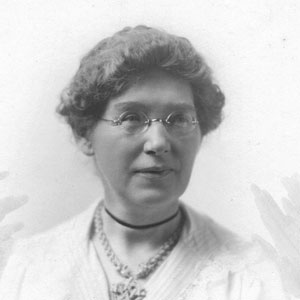
Manchester Evening News, Friday July 14 1939
By a special correspondent
She boiled the puddings for the first “boys town”.
Elizabeth Cunningham smiled. She did not look her 72 years. She is a great grandmother, and – with some 50 years of memories – is what I might call the “mother” of all holiday camps.
When she was a young married woman of 22 Elisabeth Cunningham noticed a newspaper advertisement painting the glories of Laxey, in the Isle of Man, as a holiday resort.
She took her two boys there that summer, and was found lodgings. Her husband, Mr Joseph Cunningham, who was interested in boys work in Liverpool, took a party of boys to the island to sleep camp under canvas.
Thus began the first holiday camp in the world – or, at least, it was the foundation of the holiday camp yet to come, and Elizabeth and Joseph Cunningham were pioneers of a new kind of holiday whose popularity has spread to every corner of the British Isles and to many countries overseas.
FOR MEN ONLY
Mr Joseph Cunningham died in 1924 but Elizabeth Cunningham is the active head of the organisation today.
Her face was wreathed in smiles as she recalled the early days of the camp, and told me how it had grown to a vast self-contained camp town, with accommodation for 4,000 men.
“It has always been men only here,” she told me. “It is the only camp run exclusively for men”.
“You might call it “boys’ town” for they are all like boys on holiday here”.
“The first camps were held for only a fortnight at a time. When my husband took parties of boys from Liverpool they brought everything with them bell tents bedding and some of the food.” “I used to cook plum puddings in a boiler at home so they could take them with them.”
“There were no dining rooms or kitchens in those days; the boys did their own cooking over an open campfire. There were no bedsteads, and they slept on the floor, eight to a tent.”
SITE WAS MOVED
“The camp was at the Claddagh, in a field on the riverbank at Laxey. When the boys began wanting to stay longer the camp was moved to Groudle.”
“Within a few years it had become a commercial enterprise. The number of tents grew from 10 to 25 and the total number of campers reached 450.”
“Up to then I had never lived in camp, but in 1904 I saw it was going to be a big thing, so I packed up and left England for good.”
“That was our first season as the Cunningham holiday camp on this site. It was a field of waving corn. When we came, we erected a building 100 feet by 70 feet as a dining and recreation room. There were tents for 500 people.”
“On Easter Sunday the almost completed building was blown down in a gale and we had to start again.”
“But the camp was a success we took 800 people and in the second year 1,200 and it went on growing until it reached the 4,000 mark.”
“Extensions and improvements were going on all the time. I took charge of the catering and administration and from Easter to September I was never outside the camp.”
GRANDAD COMES
“Some of our first visitors still come here year after year. You see grandfathers now introducing their grandsons to the camp.”
“One man here now has never missed coming for 32 years and we get people from all over the world.”
In the business with Mrs Cunningham now are her two sons William and Harley Cunningham and her daughter Mrs Ina Royston. She had six grandchildren and one great grandchild.
Image: Collection of Jill Drower

